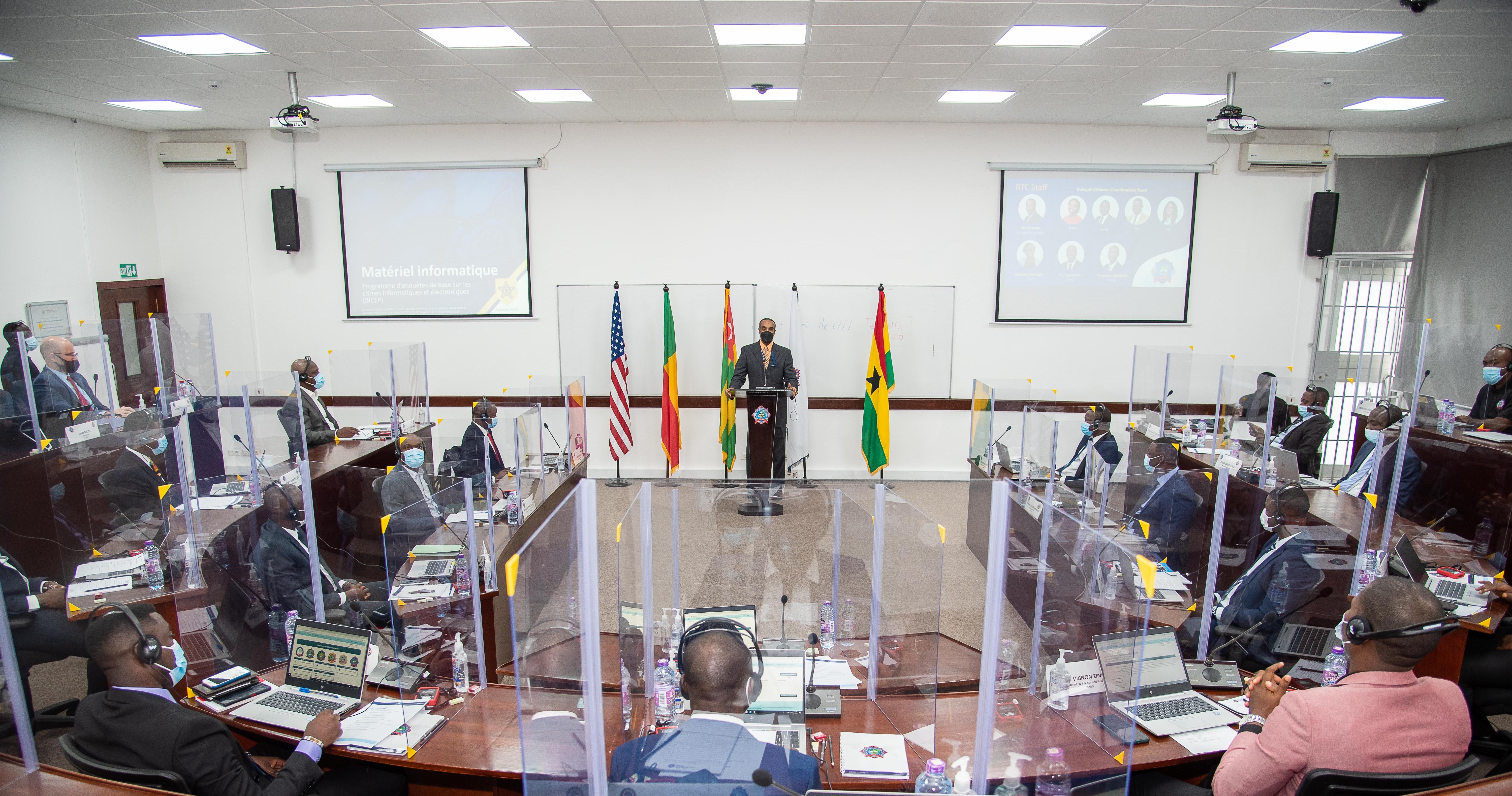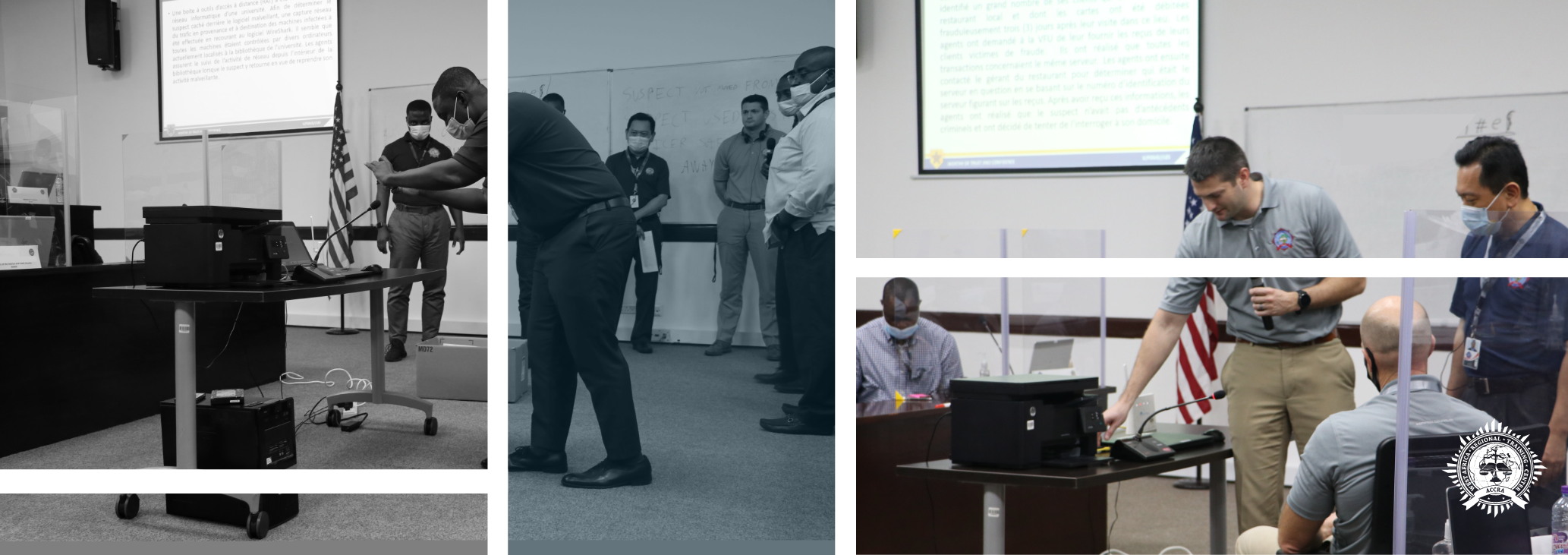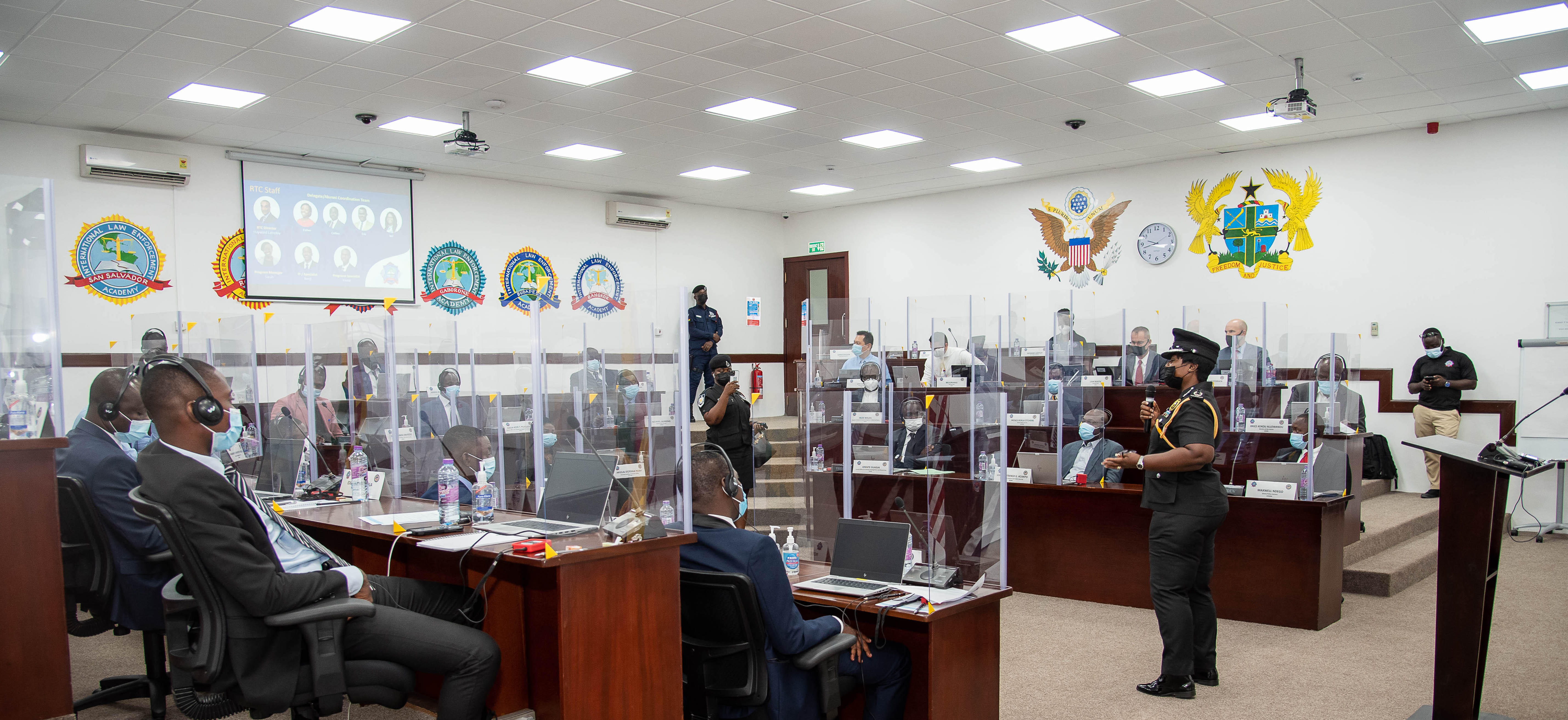Alumni In Focus
Alumni in Focus


Featured in our newsletter this month is an alumnus who attended the Basic Investigations of Computer and Electronic Crimes Program (BICEP) in October 2021. BICEP was our first in-person training at the RTC since the outbreak of Covid-19. He shared his impressions about the course and the measures put in place by the RTC to ensure the center was safe for the training. Enjoy the read!
Briefly introduce yourself and your law enforcement career.
My name is Mr. Mohammed and I am an Information Technology officer with the National Intelligence Bureau (NIB). I have worked with the bureau for 12 years and my work involves forensic analysis and criminal investigations.
What were your major takeaways from the BICEP course?
My major takeaways from the BICEP course include: introduction to dark web and cryptocurrency as well as the lab exercise on collecting evidence at a crime scene. The model on the dark web gave me an insight on how some criminals prefer to access sites on the darknet with The Onion Router (TOR) to hide their criminal activities. Also, the lectures on cryptocurrency gave me an understanding on what to consider when investigating a case involving the use of cryptocurrencies like bitcoin, Ethereum, etc. The course created an environment for networking and sharing best practices with the instructors from the United States Secret Service as well as participants from Ghana, Benin and Togo.

What would you say are the major challenges that investigators face when investigating cyber-enabled crimes?
From my experience, some of the challenges in investigating cybercrimes include inadequate tools and the limited knowledge that some investigators have in the area of cybercrime. Investigators that work on cybercrime cases and work in forensic laboratories need to get basic and advanced training on cybercrime investigations skills. I have had the opportunity to attend series of cybercrime investigation trainings at the RTC and they have helped build my capacity in working cybercrime cases. Additionally, investigators need to be introduced and also have access to forensic tools that will assist them close cases that are cyber-related.
Based on the knowledge acquired from this course, what advice would you give to law enforcement officers who investigate cyber-enabled crime?
I would advise them to be detail-oriented when working cybercrime cases, especially when gathering electronic evidence and processing scenes where cyber-related crimes have been committed. This helps to preserve evidence that can assist them in their investigations. They need to collect as much evidence as possible, regardless of how insignificant a piece of evidence may seem.

How do you intend to share the knowledge acquired?
After every training we receive externally, we have an obligation to prepare a report and also share the knowledge acquired with other colleagues in the department. I believe if my colleagues are able to attain the level of knowledge that I have acquired here at the RTC, we will excel in the investigations and analysis we do.
What was your experience as one of the participants to attend our first in-person course at the RTC since the Covid-19 outbreak?
I was really hesitant about attending the course especially when the pandemic is still around. However, I felt very comfortable when I entered the facility on Day 1 of the training. The RTC had put in place protective measures to keep staff, instructors as well as participants. There were signages everywhere encouraging participants to socially distance and wear nose masks. There were also handwash stations, automatic hand sanitizer dispenser, plexiglass barriers in the classrooms, etc. Additionally, RTC ensured that all participants get tested at the beginning and the end of the course. These health and safety protocols served as assurance for participants to actively participate in the course. I want to commend the Director and the staff of the RTC for putting all these safety measures in place to make the BICEP course a success.
Would you like to be featured in our next newsletter, write to us at info@westafricartc.org? We would love to hear about your feedback on the trainings you received at the RTC and how you are utilizing them.


